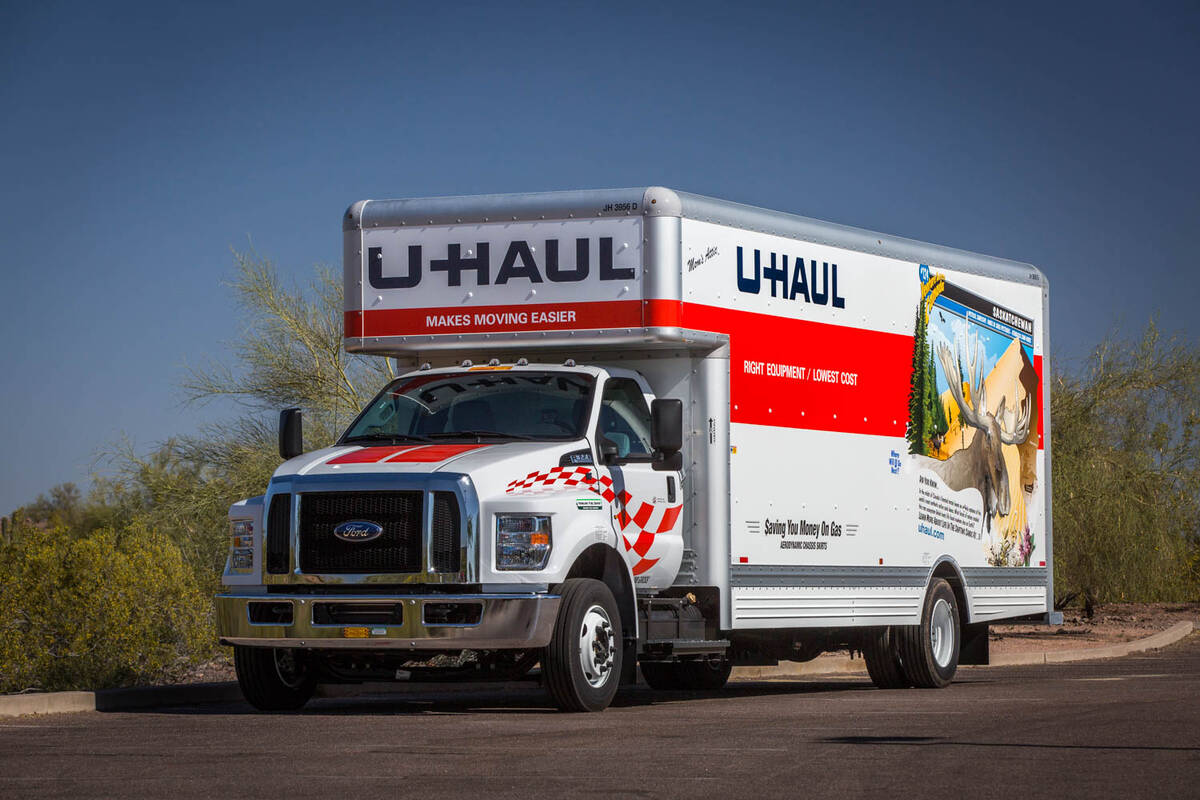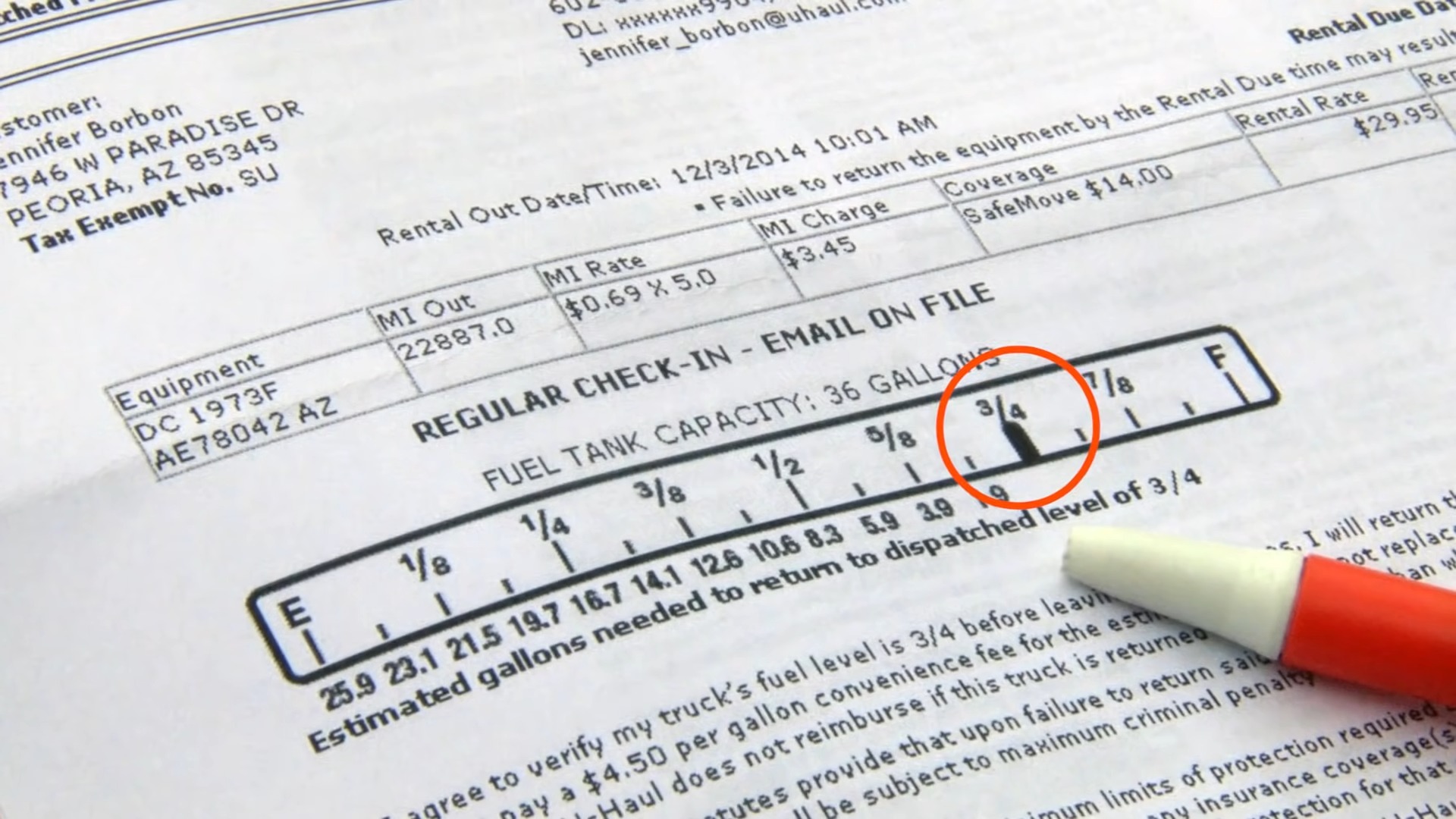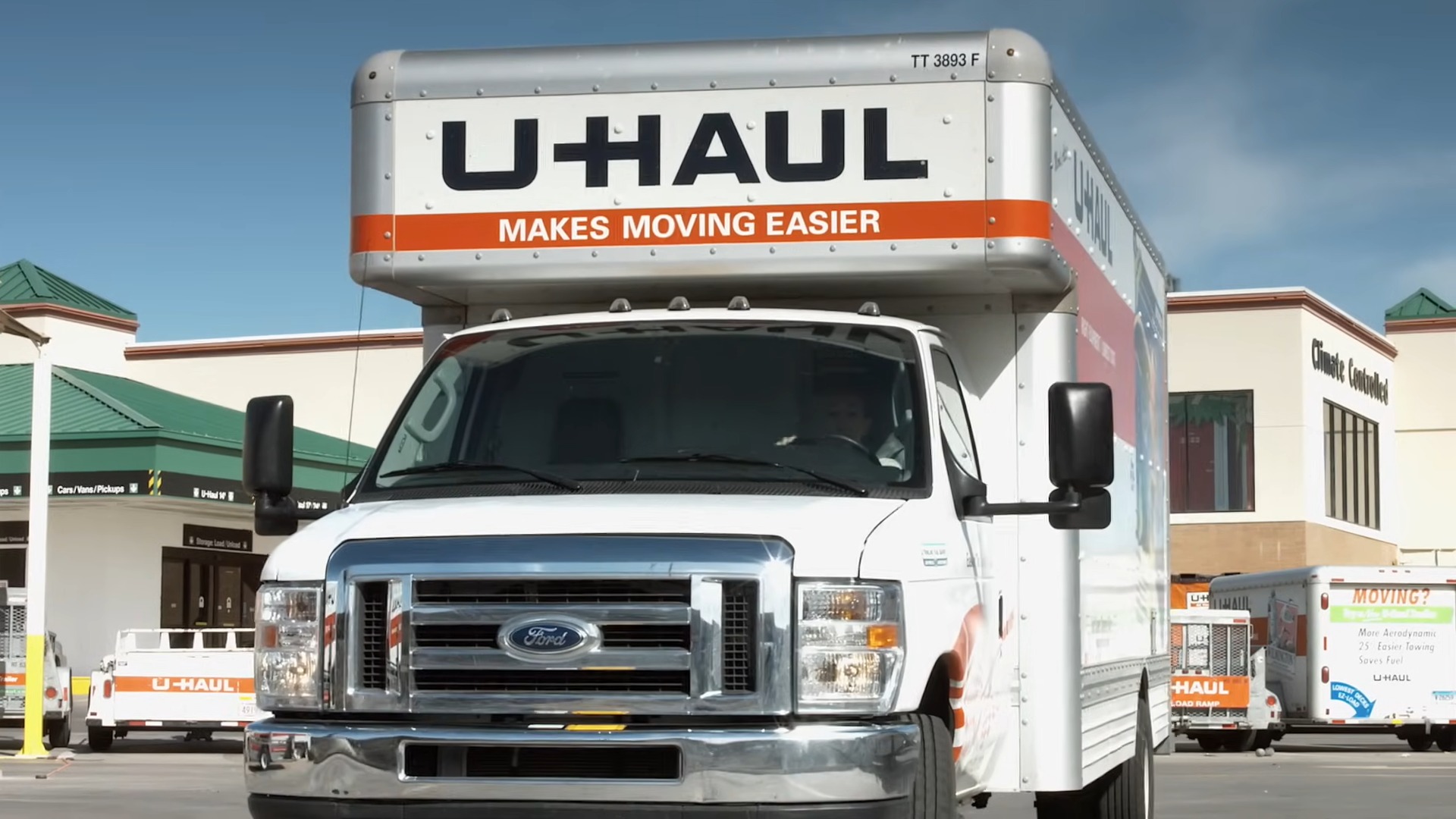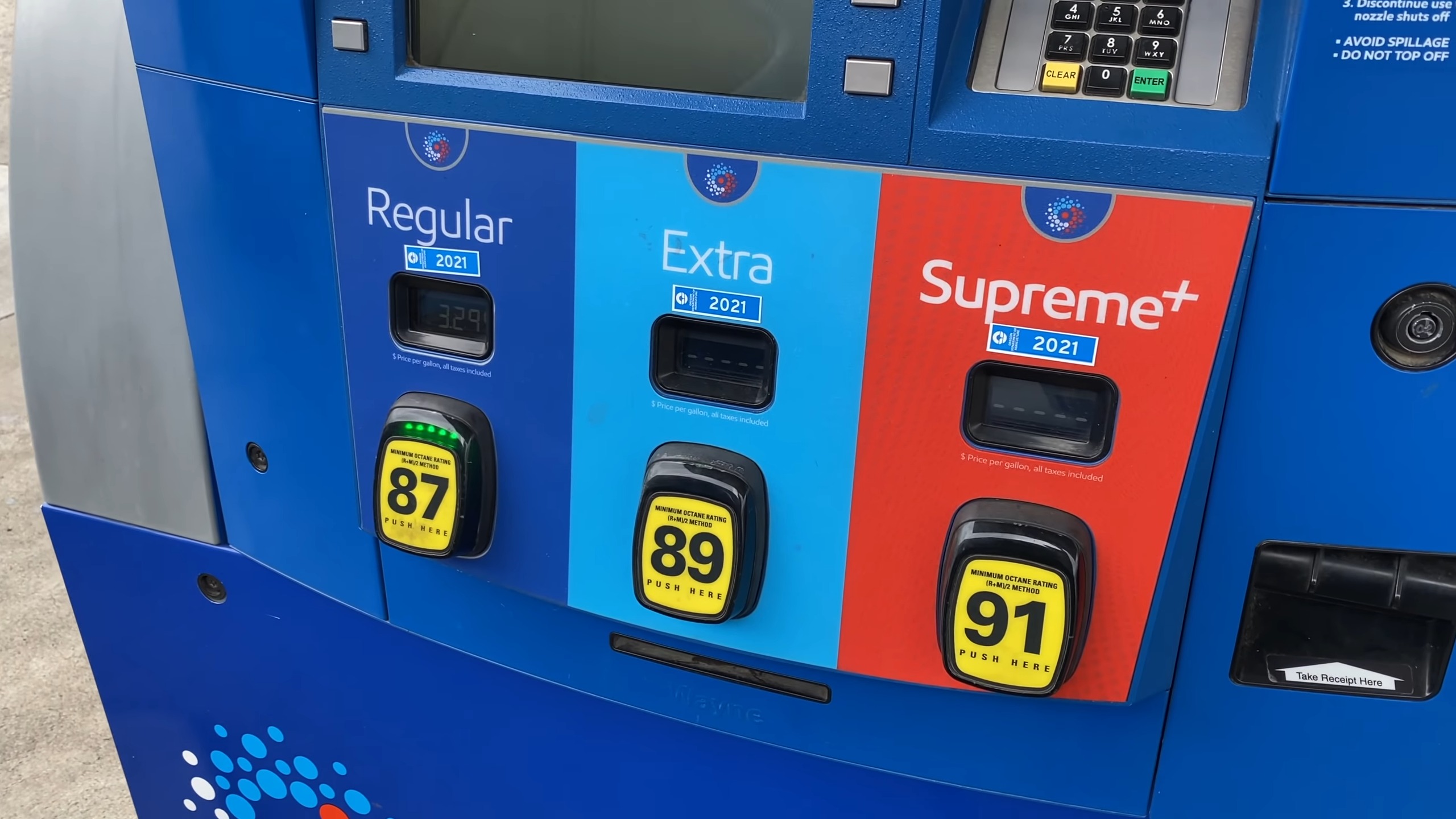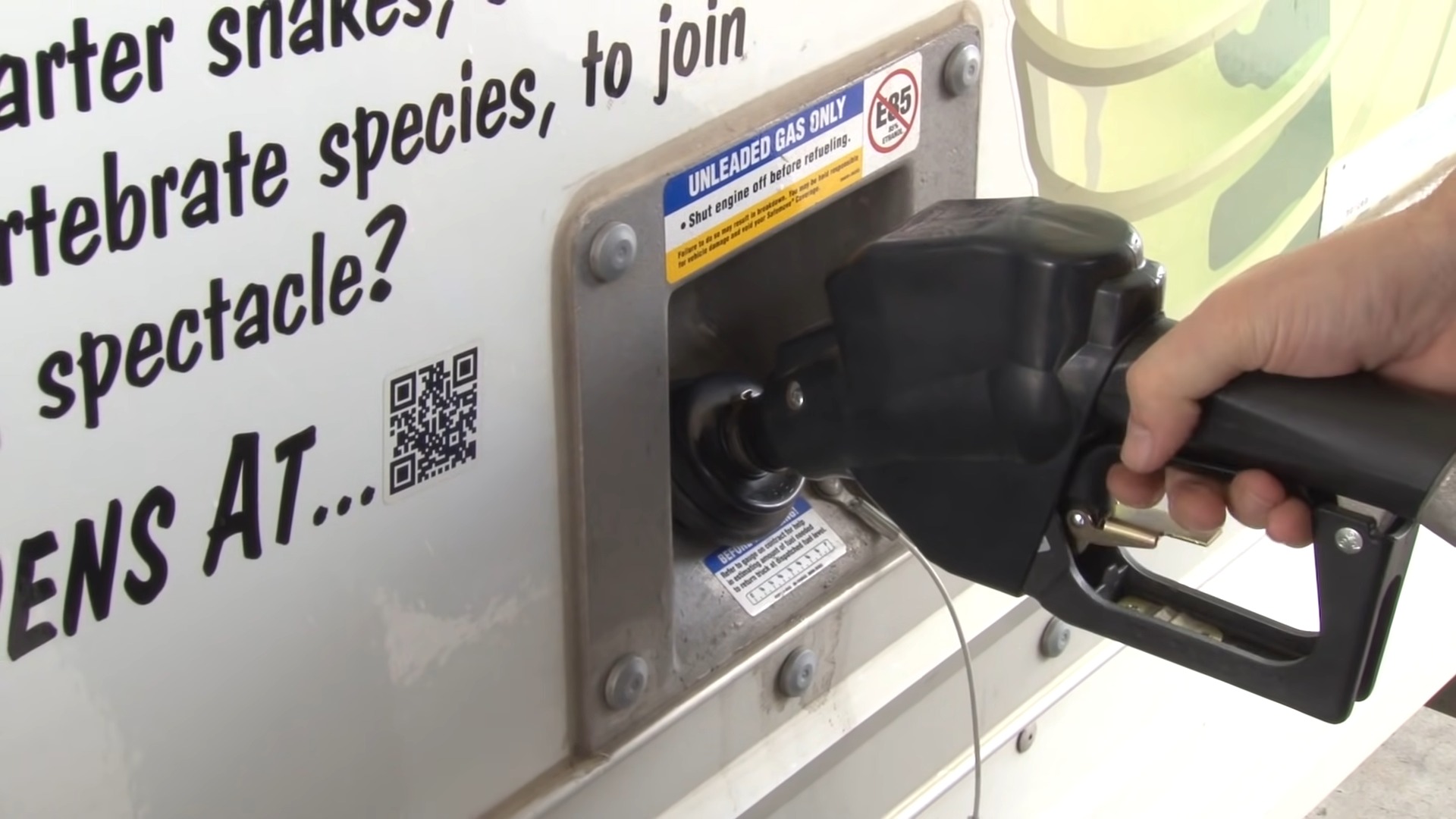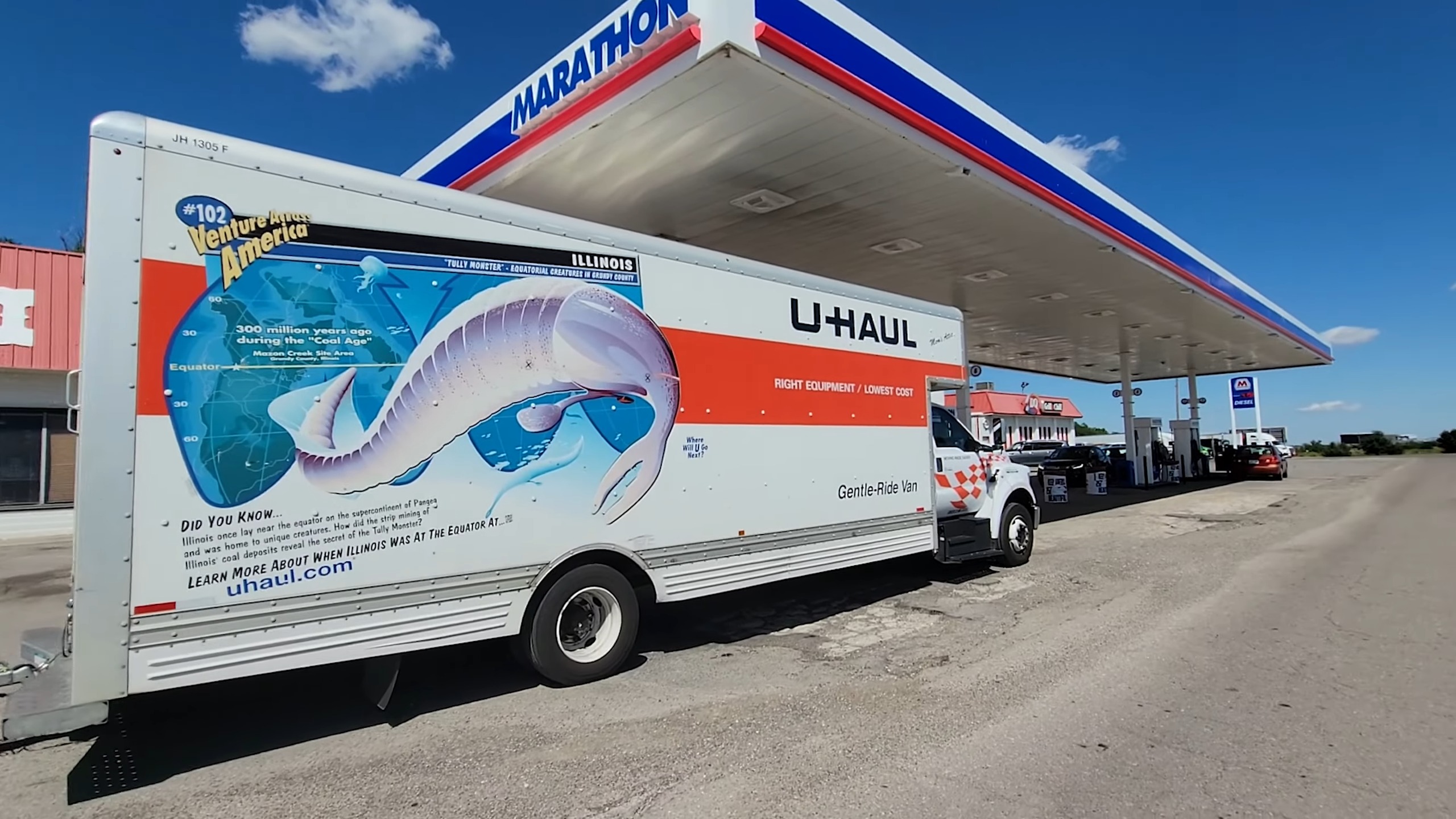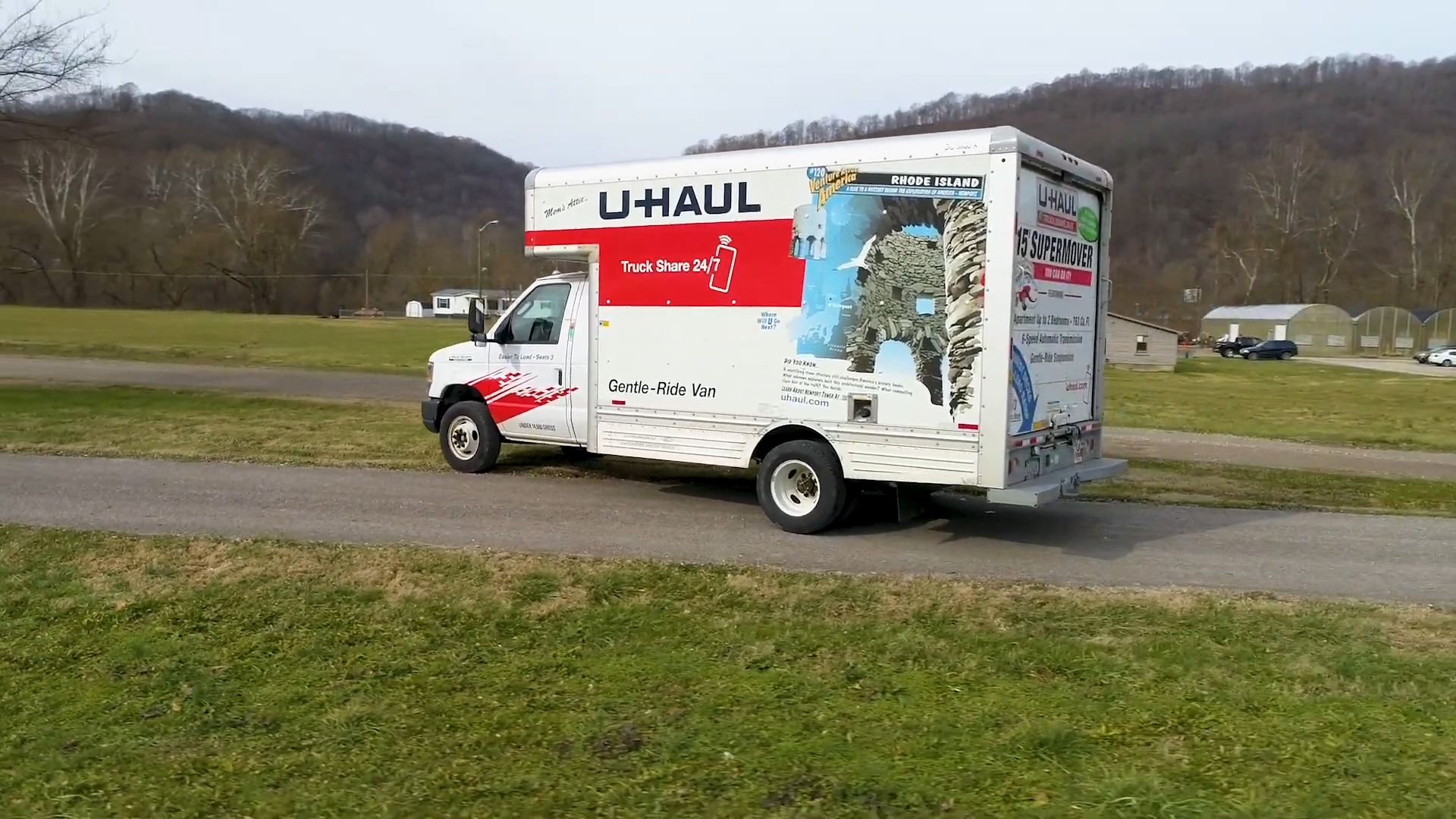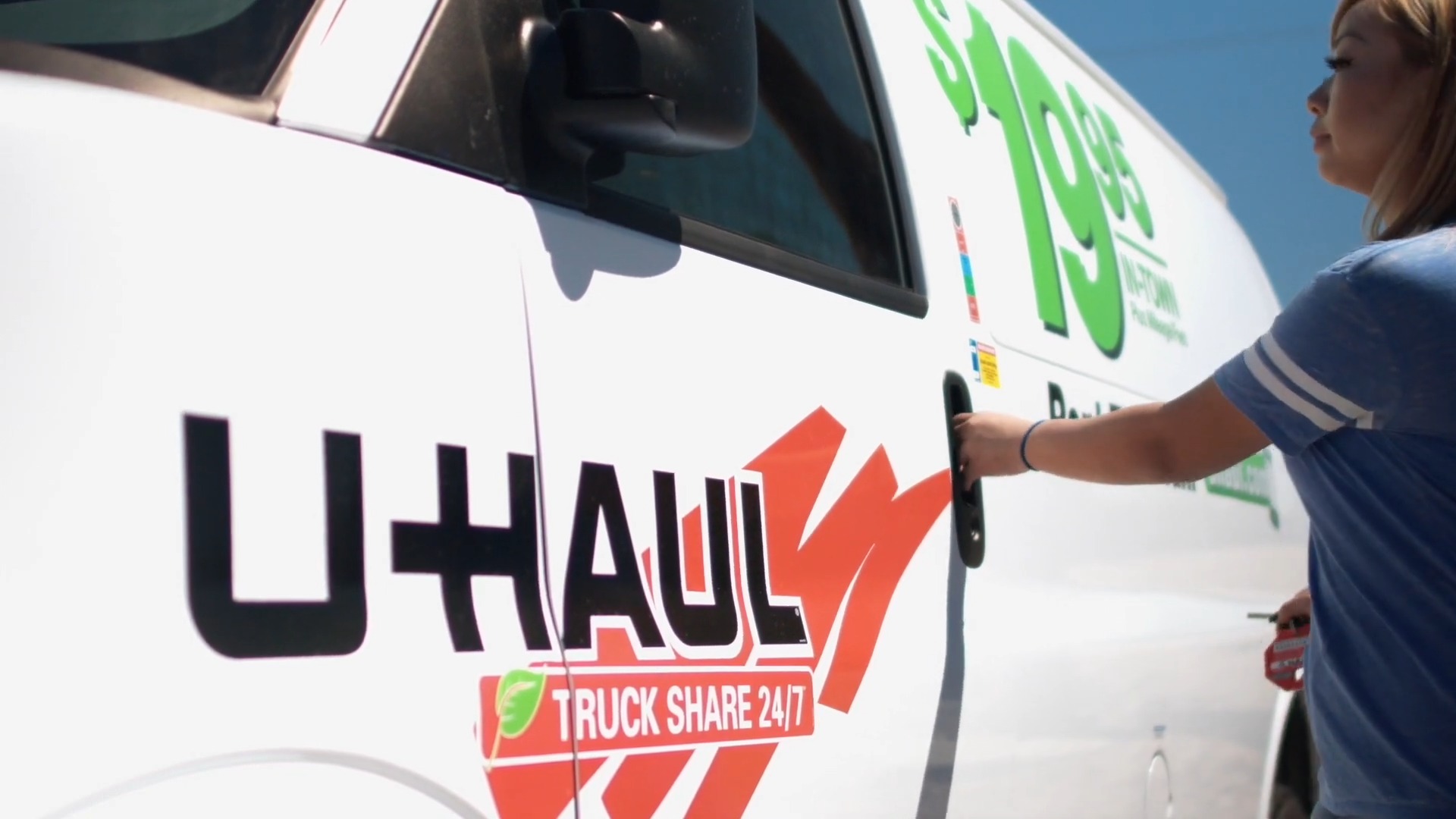U-Hauls have been synonymous with long-distance moving for decades. Their widespread availability and cost-effectiveness make them a go-to choice for many.
However, with the variety of vehicles they offer, a common query arises: “What kind of fuel do U-Haul rentals need?” Drawing from my personal experiences and extensive research, I’ve crafted this guide to answer just that. Let’s delve into the details.
U-Haul Fuel Requirements
Diverse fleet of vehicles, ranging from large trucks to smaller vans, often leads to confusion regarding the appropriate fuel type. It’s essential to use the correct fuel to ensure the vehicle’s optimal performance and avoid potential damage.
Where to Find Fuel Information for Your U-Haul
When you rent a U-Haul, the type of fuel it requires is typically indicated. Larger U-Haul trucks and cargo vans predominantly use unleaded gasoline. If uncertain, you can:
- Check for a label on the fuel door or the fuel filler neck, which often states “Unleaded gasoline only“.
- Refer to the rental agreement paperwork provided during the rental process. This document contains essential details about the vehicle, including its fuel requirements.
Contacting for Fuel Queries
If you’re still unsure about the fuel type after checking the vehicle and paperwork, U-Haul’s customer support is always available to assist. By providing them with the vehicle type and your customer details, they can guide you on the appropriate fuel. Their contact number is 1-800-GO-U-HAUL (1-800-468-4285).
Shift from Diesel to Gasoline
Historically, many moving trucks, including those, operated on diesel due to its cost-effectiveness. However, there’s been a significant shift in recent years.
The Transition to Unleaded Gas
Modern U-Haul trucks and cargo vans predominantly use unleaded gas. This transition was influenced by several factors:
- Noise Levels: Gasoline vehicles tend to be quieter than their diesel counterparts.
- Customer Confusion: There were instances where customers mistakenly filled diesel vehicles with gasoline, leading to complications and costs for U-Haul.
- Environmental Concerns: Gasoline is generally considered cleaner than diesel, aligning with the industry’s move towards more eco-friendly solutions.
Diesel Availability in Fleet
While the majority of U-Haul’s fleet now operates on unleaded gas, diesel vehicles are still available at certain locations. However, their availability is limited, and customers should check in advance if they prefer a diesel vehicle.
Gasoline Grades for Rentals
Different gasoline grades, often determined by their octane levels, can sometimes lead to confusion. Let’s clarify which ones are suitable for U-Haul vehicles.
Regular Gas vs. Premium Gas
Most vehicles are designed to run efficiently on regular gas, which is more affordable than premium gas. However, using premium gas in a U-Haul vehicle designed for regular gas won’t cause any harm. The primary difference between the two is the octane level, with premium gas having a higher octane rating.
The Significance of 87 Octane Gas
U-Haul vehicles typically use regular unleaded gas, which has an octane rating of 87. While it’s perfectly fine to use higher octane fuels like premium or super, 87 octane gas is preferred by most customers due to its cost-effectiveness and suitability for both short and long trips.
Rentals and Pre-Filled Gas
When you rent a vehicle, whether it’s a car or a U-Haul, the expectation of the fuel status at pickup and return can vary. Here’s what you need to know about U-Haul’s policy.
Picking Up: What to Expect
Just like many rental car services, U-Haul vehicles come with pre-filled gas tanks. This means you don’t have to rush to a gas station immediately after picking up your rental.
However, it’s essential to note the fuel level at the start of your rental period to avoid any discrepancies later.
Returning: Refilling the Tank
When returning your U-Haul, it’s standard practice to refill the tank to the level it was when you picked it up. If you return the vehicle with less fuel than initially provided, U-Haul may charge you for the difference, often at a higher rate than local gas prices. To avoid additional fees, it’s always best to refill the tank yourself before returning the vehicle.
Fuel Efficiency: What to Anticipate
Understanding the fuel efficiency of your U-Haul vehicle can help you plan your trip better and budget for gas expenses.
Mileage Considerations
Trucks typically offer a mileage range of 12 to 15 miles per gallon (mpg). This efficiency means that for longer trips, you might need to refuel every 200-400 miles. Given this, it’s crucial to plan your gas stops, especially if traveling through areas with fewer gas stations.
Cost-saving Tips
Opting for regular gas over premium can lead to significant savings, especially over long distances. Additionally, using apps or websites that provide real-time gas prices can help you find the most affordable gas stations along your route.
Commitment to Customer Service
U-Haul’s dedication to ensuring a smooth rental experience extends beyond just providing vehicles. They offer various resources to assist customers throughout the rental process.
Support Channels
For any queries or concerns related to your rental, including fuel-related issues, customer support is readily available. You can reach them at 1-800-GO-U-HAUL (1-800-468-4285). Additionally, their website offers email support and a “request a callback” feature for added convenience.
Essential Documentation
Upon renting a U-Haul vehicle, you’ll receive documentation that contains vital information about the vehicle, including its fuel requirements, rental terms, and more.
It’s advisable to keep this paperwork handy throughout your rental period, as it can be a valuable reference in case of emergencies or disputes.
Environmental Initiatives
In today’s world, where environmental concerns are at the forefront, U-Haul has made strides to ensure its fleet and operations are as eco-friendly as possible.
Green Initiatives
U-Haul has been proactive in adopting green practices. Their shift from diesel to unleaded gasoline is not just a business decision but also an environmental one. Gasoline, especially unleaded, emits fewer pollutants compared to diesel.
Recycling and Repurposing
Also been known to repurpose old buildings for their storage facilities, reducing the carbon footprint associated with constructing new buildings. This practice not only conserves resources but also preserves the historical essence of many towns and cities.
U-Haul’s Innovations in Fuel Efficiency
Fuel efficiency is not just about saving costs; it’s also about reducing emissions and being kinder to our planet.
Modern Fleet
Continually updates its fleet to ensure that customers are provided with modern, fuel-efficient vehicles. These newer models often come with advanced engine technologies that optimize fuel consumption and reduce emissions.
Educating Customers
U-Haul educates its customers on the best driving practices to maximize fuel efficiency. Simple tips, such as maintaining a steady speed and avoiding rapid acceleration or braking, can make a significant difference in fuel consumption.
Safety First: Commitment to Its Customers
While fuel and environmental considerations are crucial, safety remains a top priority for U-Haul.
Vehicle Maintenance
Ensuring that its vehicles are regularly serviced and maintained. Before any vehicle is rented out, it undergoes a thorough inspection to ensure it’s in optimal condition, reducing the risk of breakdowns or issues during the rental period.
Training and Resources
U-Haul provides resources and training materials for customers to familiarize themselves with the vehicles. This includes guidelines on safe loading, driving tips, and what to do in case of emergencies.
FAQ
Can I rent a U-Haul for out-of-state moves?
Yes, U-Haul offers both local and one-way rentals, making it suitable for out-of-state moves.
Are there age restrictions for renting a U-Haul?
Typically, you need to be at least 18 years old with a valid driver’s license to rent a U-Haul truck or van.
Can I tow my car using a U-Haul truck?
Absolutely! U-Haul provides auto transport trailers specifically designed for towing vehicles.
What happens if I return later than the agreed time?
Returning a U-Haul after the stipulated time might incur additional charges. It’s always best to inform the rental location if you anticipate a delay.
Are pets allowed in U-Haul vehicles?
While U-Haul doesn’t have a strict no-pet policy, it’s recommended to keep pets in a secure carrier during the move for their safety.
Do I need additional insurance to rent?
While U-Haul offers optional insurance coverage, it’s advisable to check with your personal auto insurance provider to determine if rentals are covered under your policy.
Can someone else drive I’ve rented?
Yes, but additional drivers should be listed on the rental agreement to be covered under U-Haul’s insurance policies.
Final Words
U-Haul has revolutionized the way we approach moving, offering flexibility, affordability, and convenience. Whether you’re embarking on a new adventure or simply relocating to a new neighborhood, U-Haul’s comprehensive services ensure a hassle-free experience. Remember to always prioritize safety, plan ahead, and enjoy the journey. Here’s to new beginnings and smooth transitions!

